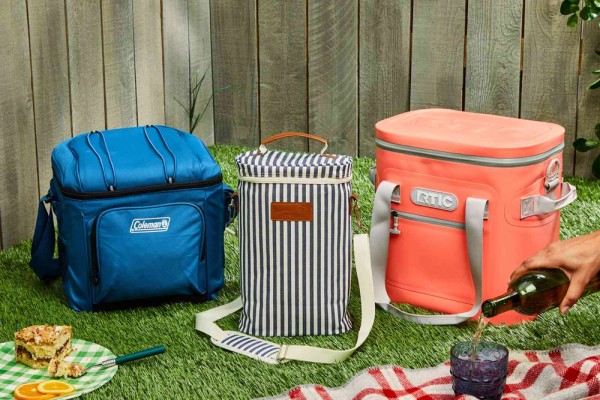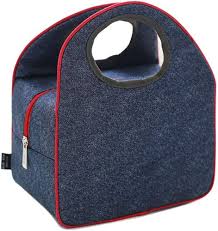The market for custom insulated bags is multiplying as businesses and consumers seek smarter, more efficient ways to keep their items cool or warm. Whether you’re in the food delivery industry or need a reliable bag for your outdoor adventures, the choice of materials plays a crucial role in the performance of these bags. This article will explore the most innovative materials transforming the custom insulated bags market, offering enhanced insulation, durability, and sustainability.
Key Takeaway: The right materials can greatly impact the performance, cost, and environmental impact of custom insulated bags. Let’s explore the most innovative options available today!

1. Understanding the Role of Insulation in Custom Bags
Insulation is the heart of any custom insulated bag. Its primary function is to maintain the temperature of the contents, whether it’s keeping food warm or drinks cool. The material used in the insulation directly impacts the bag’s efficiency in preventing heat transfer. For businesses producing custom insulated bags, the goal is to use materials that offer the best thermal protection while being cost-effective and durable.
For example, traditional materials like foam have been widely used for insulation, but newer, more sustainable options are becoming popular due to their lower environmental impact.
2. Top Innovative Materials Revolutionizing Custom Insulated Bags
As demand for eco-friendly and high-performance products rises, several innovative materials lead the way in custom insulated bags. Here are some of the top materials currently revolutionizing the industry:
Polyurethane Foam

Due to its excellent thermal properties, polyurethane foam is one of the most widely used insulation materials in custom insulated bags. It provides superior insulation, keeping contents at the desired temperature longer. With the rise of food delivery services and on-the-go meals, the demand for custom insulated polyurethane foam bags is expected to grow.
However, polyurethane foam is not biodegradable, making it less eco-friendly compared to other innovative options. Still, its thermal efficiency makes it a popular choice for companies prioritizing performance.
Recycled PET (rPET)

Recycled PET (rPET) is gaining traction as a sustainable alternative to traditional insulation materials. With the rPET market projected to reach $20 billion by 2025, more manufacturers are turning to this material for custom insulated bags. Made from recycled plastic bottles, rPET reduces plastic waste and offers decent insulation properties for food and beverage transport bags.
Using rPET aligns with the growing demand for eco-friendly products, allowing companies to cater to consumers who prioritize sustainability. Learn more about custom insulated bags made from rPET by visiting How Can RPET Products Help You Promote Your Business In An Environmentally-Friendly Way?
Tyvek

Tyvek is a durable, water-resistant material often used in custom insulated bags. It is made from high-density polyethylene fibers, making it lightweight yet strong. Tyvek bags are insulated, reusable and recyclable, making them an attractive option for eco-conscious brands. This material’s versatility makes it suitable for various custom insulated bags, including those used for outdoor activities or medical transportation.
Denim

Denim is not just for jeans—it’s increasingly used in eco-friendly custom insulated bags. Made from cotton or recycled denim, this material is biodegradable and aligns well with sustainability trends in the consumer goods sector. Denim’s robust texture and ability to hold its shape make it a popular choice for reusable, durable bags that require insulation.
3. The Shift Towards Sustainable Materials in Custom Insulated Bags
Consumers are becoming more aware of the environmental impact of their purchases, driving a shift towards sustainable materials in custom insulated bags. Recycled materials like rPET, cornstarch-based insulation, and denim offer advantages over traditional, non-recyclable materials.
As sustainability becomes a key concern for businesses, offering eco-friendly custom insulated bags meets market demand and enhances a brand’s reputation. A growing number of consumers are willing to pay a premium for products made from recycled or biodegradable materials.
4. How Technology is Enhancing Custom Insulated Bag Designs
The role of technology in custom insulated bags is not just limited to insulation. Advanced manufacturing techniques are improving the quality and performance of these bags. For example, newer materials such as foil bubble insulation and thermal linings have been developed to provide superior protection against heat transfer.
Technology also allows for precise customization, enabling businesses to create custom insulated bags that meet their needs. Whether it’s a bag for food delivery, medical supplies, or outdoor gear, technology enables manufacturers to design bags that offer optimal performance in various environments.
5. Traditional vs. Innovative Materials

Traditional Materials in Custom Insulated Bags:
- Polyester and Nylon: These materials are commonly used for the outer shells of custom insulated bags. While they offer durability and resistance to wear, they don’t provide the same level of insulation as newer materials.
- Foam Insulation: Traditional foam is widely used due to its high thermal resistance, but it’s not eco-friendly and can contribute to environmental damage.
Innovative Materials in Custom Insulated Bags:
- Recycled PET: Offers an eco-friendly alternative to traditional plastic-based insulation while providing adequate thermal protection.
- Cornstarch and Denim: These biodegradable materials offer superior environmental benefits and can be composted after use, making them ideal for sustainability-conscious consumers.
6. Future Trends: What’s Next for Custom Insulated Bag Materials?
The future of custom insulated bags looks promising, with new advancements on the horizon. Materials that offer superior insulation and environmental benefits will continue dominating the market. Companies are investing in research to develop more efficient and eco-friendly materials, such as biodegradable insulation and next-generation recyclable plastics.
As the demand for sustainable packaging solutions rises, businesses in the custom insulated bags market will need to adopt the latest innovations to stay ahead of the curve.
7. A Guide for Businesses
When choosing the right material for your custom insulated bags, consider the following factors:
- Insulation Performance: Does the material keep items at the desired temperature for the required duration?
- Durability: Will the material withstand frequent use without breaking down?
- Environmental Impact: Opt for recyclable or biodegradable materials to appeal to eco-conscious consumers.
- Cost-Effectiveness: Balance quality with cost to ensure your custom insulated bags remain affordable for your target market.
- Customization Options: Choose materials that allow easy branding and personalization for your business needs.
8. Industry Statistics on Custom Insulated Bags
| Material | Insulation Efficiency | Weight | Durability | Key Advantages | Market Insights |
|---|---|---|---|---|---|
| Polyurethane Foam | High | Lightweight | High | Energy efficient, durable, weather-resistant | Valued at USD 49.34 billion in 2022; expected to grow at a CAGR of 6.3% from 2022 to 2032. |
| Recycled PET (rPET) | Moderate to High | Lightweight | High | Eco-friendly, cost-effective, versatile | Projected to grow from $9.89 billion in 2023 to $10.84 billion in 2024 at a CAGR of 9.6%. |
| Tyvek | High | Very Lightweight | Moderate to High | The global market is projected to reach USD 66.45 billion by 2031, with a CAGR of 5.7%. | Projected to grow at a CAGR of 5.9% and reach $5.3 billion by 2030. |
| Denim | High | Moderate | High | Comfortable, versatile, durable | The global market is projected to reach USD 66.45 billion by 2031, with a CAGR of 5.7%. |

9. FAQ About Custom Insulated Bags
What are the most common materials used in custom insulated bags?
Common materials include polyester, nylon, polyurethane foam, and eco-friendly options like recycled PET.
How do innovative materials improve insulation performance?
Advanced materials like polyurethane foam and foil bubble insulation provide superior thermal protection by minimizing heat transfer.
Are there eco-friendly options available for custom insulated bags?
Yes, many manufacturers now offer custom insulated bags made from sustainable materials such as recycled plastics and biodegradable options.
What should businesses consider when choosing materials for custom insulated bags?
Factors include insulation performance, durability, environmental impact, cost-effectiveness, and customization options.
How do innovative materials affect the cost of custom insulated bags?
While some advanced materials may increase production costs, they can also enhance product value and appeal to eco-conscious consumers.
Conclusion: Choosing the Best Custom Insulated Bags for Your Business
Choosing the right material for your custom insulated bags is crucial to ensuring that your products meet your customers’ needs while supporting sustainability efforts. By incorporating innovative materials such as rPET, Tyvek, and cornstarch-based insulation, your brand can deliver superior performance while reducing its environmental impact.
For more insights into cutting-edge, eco-friendly insulated bag solutions, you can explore A Fully Biodegradable Thermal Packaging Bag, a Google Patents article that discusses a fully biodegradable thermal packaging bag, showcasing sustainable practices that align with the growing demand for environmentally friendly materials.
Are you ready to enhance your product line with high-performance custom insulated bags? Contact us to explore our wide range of eco-friendly and durable options. We’re here to help your business succeed with the best insulated solutions!

